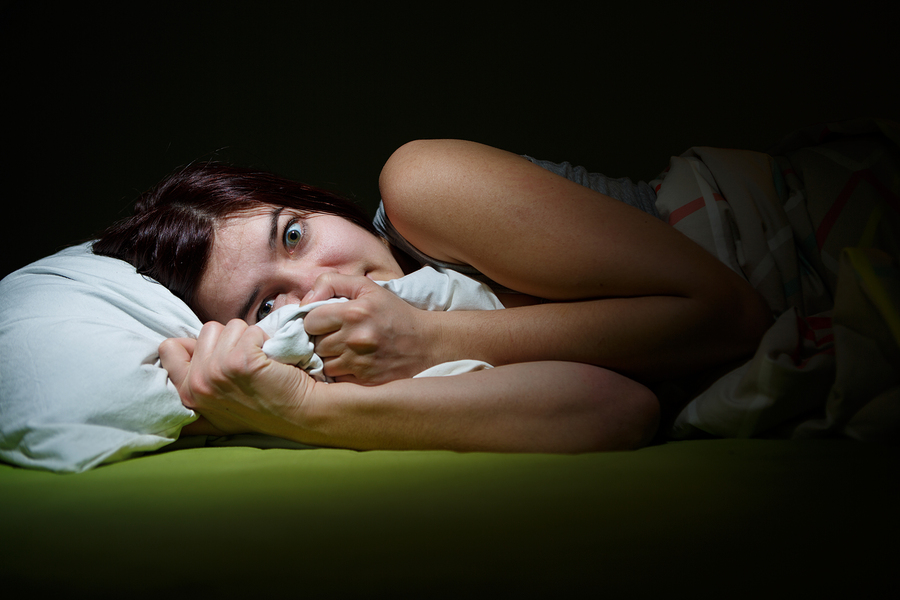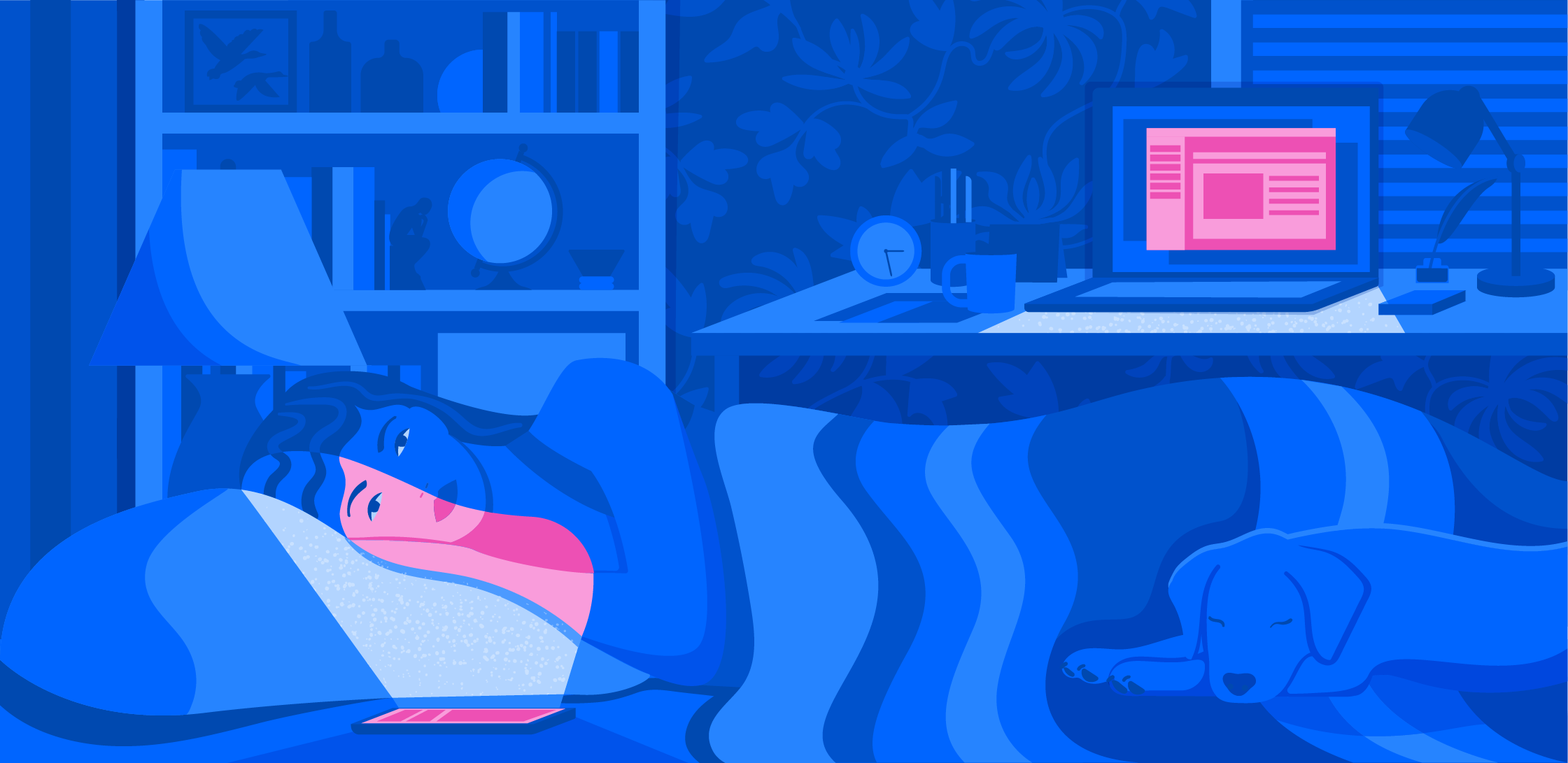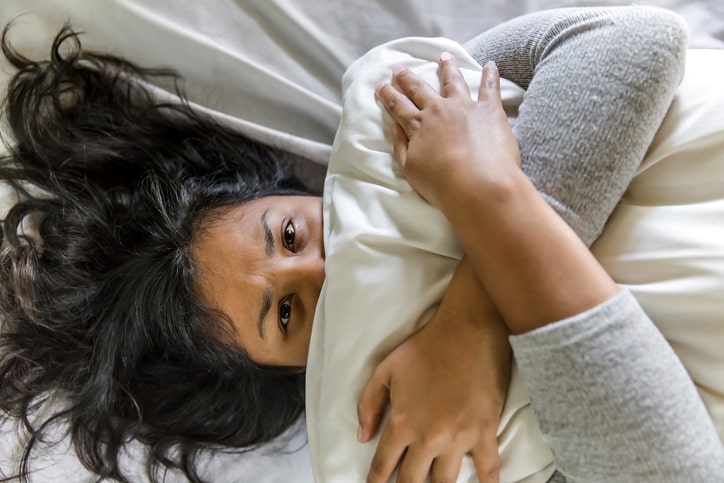It is normal that at some point in life, and especially at a young age, we are afraid of the dark, before going to sleep. There are, however, certain cases in which a person feels an irrational and extreme fear of the dark, and then we talk about a phobia, called nyctophobia.
Fear of the dark manifests itself mainly during childhood and is seen as a normal stage of development. This was present among people since ancient times, because predators hunted mainly at night.
Causes of fear of the dark and risk factors
How to overcome the fear of the dark
In some cases, however, adults can also be afraid of the dark. Studies show that the fear of the dark is not necessarily associated with the darkness itself, but with the dangers it can hide.
People are afraid of the dark because they can no longer see the source of noise, should it occur.
In other words, people fear obscurity because they cannot see and control what is happening around them.
This is precisely why horror filmmakers use darkness as a way to evoke emotions such as fear in people. Also, certain scary stories or legends only fuel people’s fear of the dark.
Even a lack of confidence can play an important role in fueling this fear, especially in the case of people who are afraid of sleeping alone.
Dark phobia
Known as nyctophobia, which comes from two Greek words (nyktos – night and phobos – fear), a dark phobia is a very strong fear of the dark, which triggers intense feelings of anxiety, tension and insecurity.
This phobia can cause a person to stop doing certain activities, to avoid certain circumstances, i.e. to stop going out at night, to stop going to places where it might be dark, and to think with horror of the times when they have to he is in a dark place.
If, for example, a person cannot fall asleep or is very stressed when bedtime approaches, because of the thought of having to stay in the dark, we can say that he has nyctophobia.
Thus, we can say that a phobia of the dark can have a direct impact on a person’s quality of life and sleep, becoming a medical problem that requires treatment.
Causes of fear of the dark and risk factors
When a person is in a completely dark space, a spasm response is created in the brain, which releases chemicals that fuel anxiety until it can reach a very high or extreme level.
Studies show that fear of the dark can be associated with separation anxiety: for example, children suffering from separation anxiety disorder may refuse to fall asleep without being close to at least one parent.
Risk factors
A person may develop a fear of the dark if:
- Has been through a traumatic event, such as an accident
- Parents exhibited anxious behavior: Children may develop a fear of the dark by seeing parents’ anxiety about certain issues
- Parents are overprotective: some children may develop generalized anxiety if they are too dependent on a parent or feel helpless in their absence
- Genetic factors: Some adults or children are more likely to develop a fear of the dark due to genetic causes
Symptoms of fear of the dark
They are triggered either when the person is already in a dark space, or before when a scenario occurs in the mind in which the person in question would imagine that they might be in a dark space.
Fear of the dark in adults is manifested by:
Physical symptoms:
- Breathing problems
- Rapid heart rate
- Chest pain
- Trembling, tingling
- Dizziness
- Sweating
- Headaches, nausea, diarrhea
- The need to sleep with the light on
- Avoiding certain social or professional events because of darkness
- Low productivity
- Emotional symptoms
- Overwhelming anxiety, a feeling of panic
- Fear of leaving the house at night
- An urgent need to get out of the dark space
- Sleep disturbances, such as insomnia, lead to high levels of stress and other problems (low productivity at work or school, increased risk of accidents due to sleepiness, etc.)
- Detachment from self
- Loss of control
- The feeling that death is imminent
- Loss of consciousness
- Depression
In some extreme cases, a person suffering from a dark phobia will go out of their way to avoid being exposed to the dark and may even show aggression if someone urges them to spend time in the dark.
How to overcome the fear of the dark
If you suffer from a fear of the dark, but not to a very intense level, and you are wondering “how to get rid of the fear of the dark”, you can find that there are a number of tips from specialists in this regard.
Relax before bed
To have the most restful sleep, it is necessary to reach a state of calm and relaxation before going to bed. You can do this if:
- Avoid drinking caffeine, alcoholic beverages or too many liquids before going to bed
- Limit exposure to blue light from screens, as it inhibits sleep
- Listen to some relaxing music or read a few pages of a book
- Drink chamomile, valerian, yarrow or lavender tea before going to bed
- Limit any thoughts that might cause you to feel stressed
Set up a setting conducive to sleep
Sleeping in a dark place can give you a deeper and more restful sleep. But there is no need to turn off all the lights so that the room is pitch black. During the night you can turn on night lights to get used to the darkness and reduce the level of anxiety felt due to it.
Face your fears and thoughts
If you hear a certain noise or sound during the night, it is advisable to take courage and face your fears, to convince yourself that they are caused by reasons that have an explanation.
You can check the source of these noises – for example, you may find that the crackling may be caused by tree branches being moved by the wind. Also, using positive affirmations can be very helpful (“It’s just noise”; “I’m not in danger”; “This is an opportunity for me to face my fears”).
Arrange your bedroom in a pleasant way
Choose light colors for the walls of the room where you sleep and arrange it pleasantly – this helps you relax before bed. Keep the room tidy and clean and set up a space for total relaxation: it can be your favorite armchair, alongside a bookshelf and a tea table. Keep only the furniture you use and don’t clutter the room unnecessarily.
Use scented candles for decor and essential oils. Aromatherapy or essential oil therapy can be helpful for restful sleep. Good essential oils for a balanced sleep are chamomile, cedarwood, lavender, and sandalwood.
Overcome the fear of sleeping alone
If the little ones can have the privilege of sleeping with their parents or siblings, the adults can sleep with a pet, so they don’t feel alone. Dogs are true companions even in the dark and can contribute to a peaceful sleep, as they make us feel safe and can help us sleep in total darkness.
Conclusions
Untreated, both fear and phobia of the dark can constitute real medical problems in certain cases, significantly affecting the quality of life of a person, whether adult or child. That is precisely why, if you are facing this condition, it is advisable to seek specialized help.
Sources:
- https://www.healthline.com/health/nyctophobia
- https://www.verywellmind.com/fear-of-dark-2671872
- https://www.medicalnewstoday.com/articles/nyctophobia
- https://www.webmd.com/parenting/features/fear-of-the-dark#2


